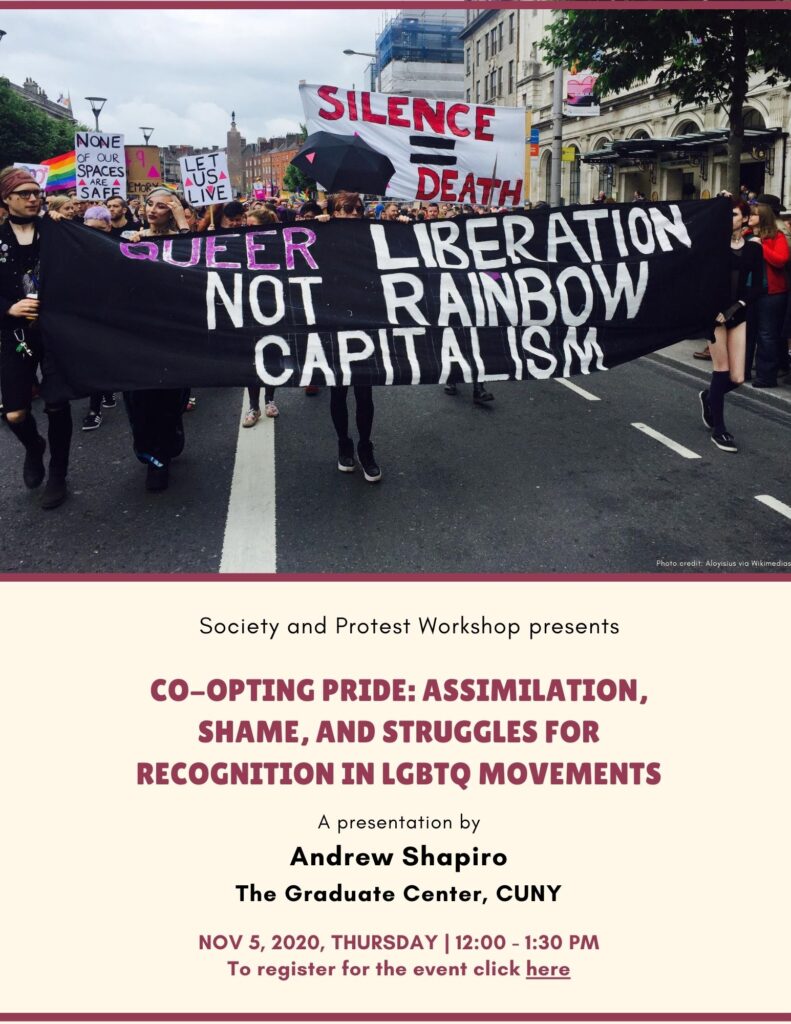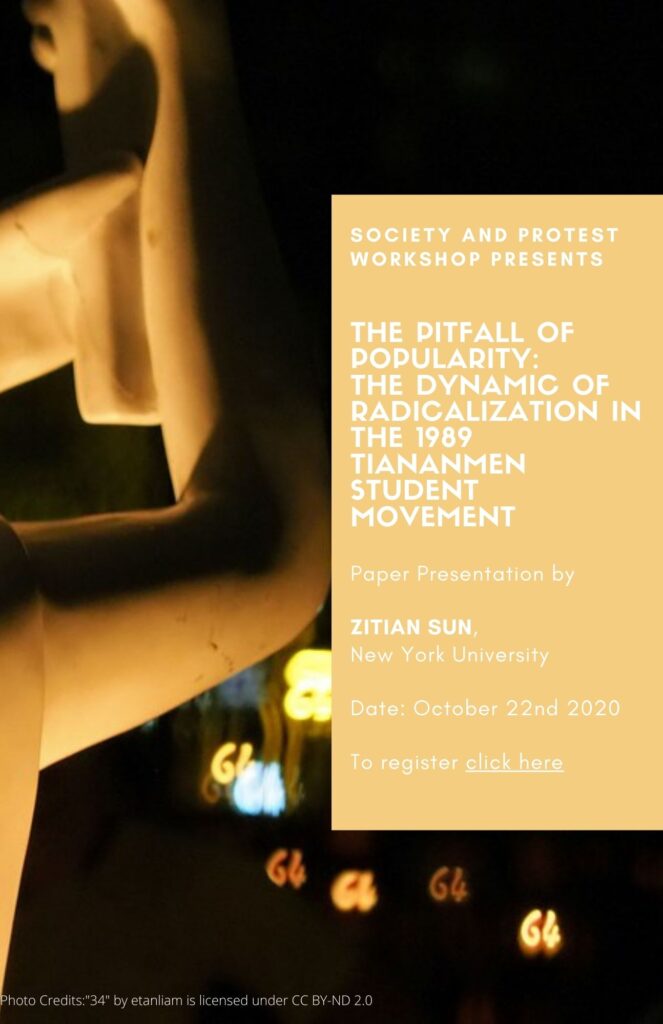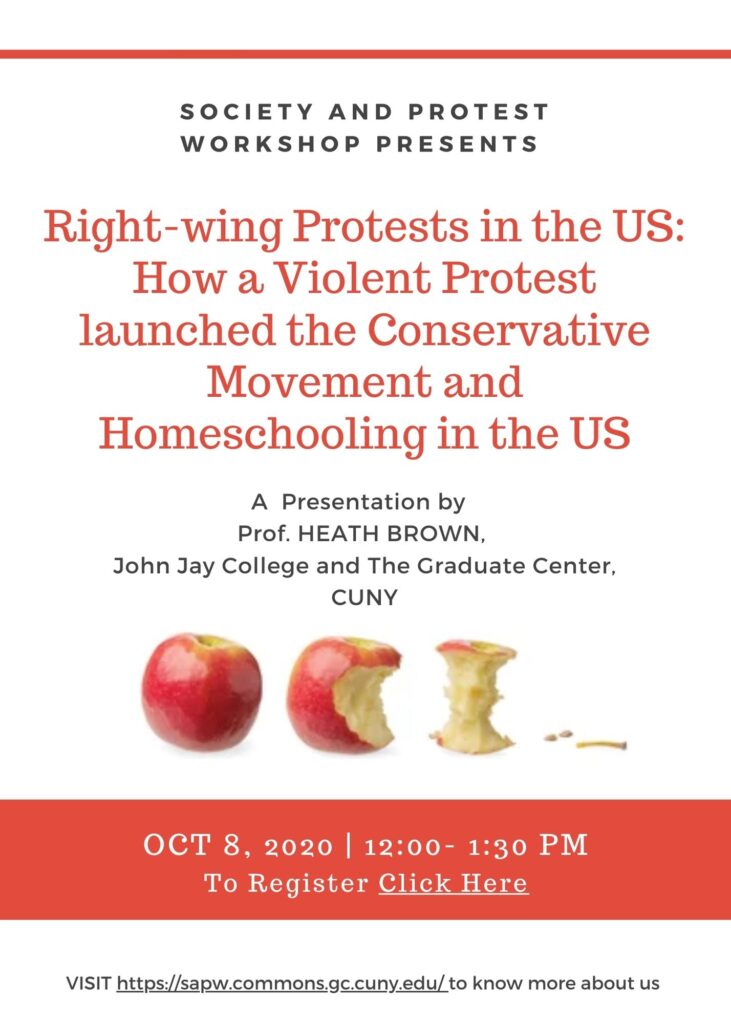by Andrew Shapiro
Nov 5, 2020 | 12:00- 1:30 PM
Click here to register for the event

As much as LGBTQ scholars and activists draw strength from history’s boldest moments of queer self-assertion, queer history has in reality oscillated between liberatory and accommodationist tendencies. And even as both poles of queer politics have produced material gains for queer lives, accommodationism risks undermining LGBTQ movement work by way of cooptation with little empirical evidence of its relative efficacy. In this presentation, I seek to explain why queer activists in general and white gay men in particular have opted for such institutional politics even where radical militancy might have entailed fewer risks and greater rewards. Pulling together various perspectives from queer theory, psychoanalysis, and the sociology of social movements, I attribute such institutionalism to an ambivalence in both strategic incentives and psychic motivations. White gays in particular and queer people in general are often raised in heteronormative households and socialized into dominant gender norms, all of which inculcates a sense of shame at failing to abide by prescribed expectations. Even as queer activists try to overcome their shame through overt expressions of pride, such pride tends to repress their shame without eliminating it. Unconsciously, they may seek to escape their shame by way of social recognition. Soliciting recognition from normative institutions in this way both reflects and exacerbates a relationship of dependency that makes cooptation increasingly likely.
About the Author
Andrew Shapiro is a Ph.D. student in Sociology, Critical Theory, and Women’s and Gender Studies at the Graduate Center, CUNY. His research investigates the structural and psychic mechanisms through which patriarchy, white supremacy, and other systems of domination are reproduced and contested. He earned his Bachelor of Arts in Sociology from Vassar College, where he researched the changing contours of racial exclusion and inclusion for New York’s Ashkenazi Jewry. His most recent projects further examine the historical trajectories of Jewish, LGBTQ, and other social movements. After three years of teaching at Lehman College, he now works with the Writing Center at the CUNY School of Law.




